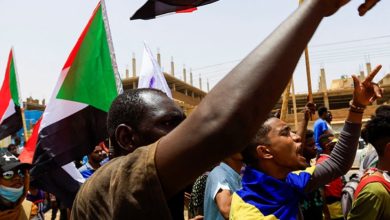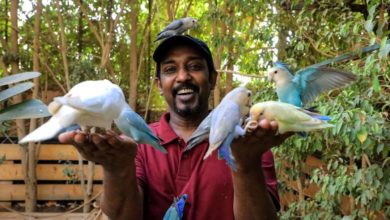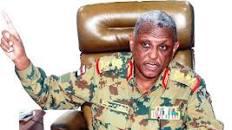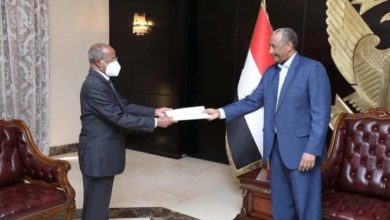Sudan investigates social worker for ‘leaking state secrets’ to UN
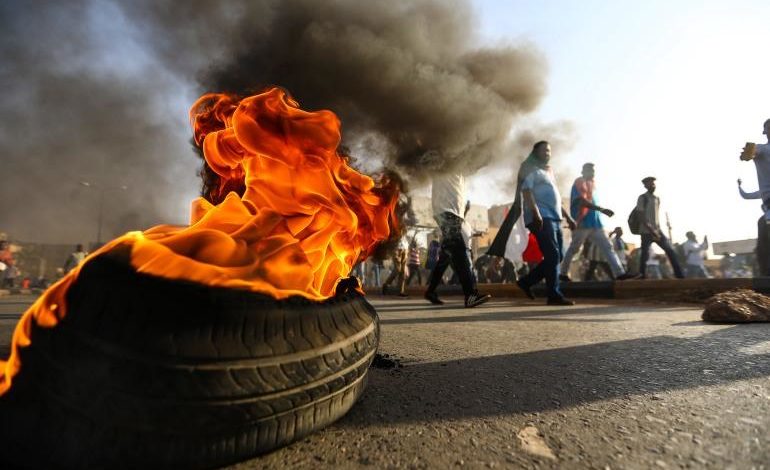
press/slma
Human rights activists say Sulima Ishaq’s work against sexual violence implicates the government she works for.
Mat Nashed
On March 28, Volker Perthes told the United Nations’ Security Council that Sudanese government forces had raped 16 female protesters since last December’s anti-coup protests.
He added that as UN envoy for Sudan, he was working with the Combating Violence Against Women (CVAW) Unit under the Ministry of Social Affairs and civil society to mitigate sexual violence in the country.
The next week, Sulima Ishaq, head of the unit, was interrogated by security services. Her lawyers say she is being investigated for accusations of “leaking state secrets” to the UN envoy under Article 47 of the country’s criminal act.
“The information I gave to the [UN] had already been broadcasted on television channels and media outlets,” Ishaq, who is now worried that she’ll go to prison on trumped-up charges, told Al Jazeera over the phone. “But because the information was presented to the Security Council and the [coup forces] are afraid of getting sanctioned, they are [targeting] me now.”
Three years after popular protests toppled former autocrat Omar al-Bashir, citizens and advocacy groups say Sudan is spiralling back into a full-throttle dictatorship.
Since last October when a military coup upended the country’s fragile transition to democracy, hundreds of protesters have been arrested.
In March, a Khartoum office – belonging to a commission investigating a June 3, 2019 incident in which security forces reportedly murdered at least 120 people to break up a sit-in – was raided by security forces.
According to Emma DiNapoli, a legal officer focusing on Sudan for Redress, a London-based non-profit advocating an end to torture worldwide, activists cooperating with the organisation have recently reported more security officers stalking them outside their homes. In some cases, this has resulted in unlawful arrests.
“None of our partners has had arrest warrants issued against them, but I think there is a general sentiment that there is higher surveillance,” DiNapoli told Al Jazeera. “Even if they are not really being surveilled, [the arrests] are having a chilling effect.”
However, experts and rights groups say Ishaq’s case represents an escalation of a broader campaign to intimidate activists and put human rights defenders on high alert.
A sensitive issue
Kholood Khair, manager of Khartoum-based think-tank Insight Strategy Partners, told Al Jazeera that the coup government is trying to make an example out of Ishaq. The authorities, she said, are particularly irked since Ishaq is a civil servant, which gives her allegations more credibility in the eyes of the international community.
In Sudan, rape victims are traditionally harassed by the public and even punished by the police, so the number of people coming forward to Ishaq was seen as a big deal, Khair explained.
“Sulima was trying to highlight that rape is a weapon of war and a weapon of repression and the number of cases [documented] shows that it is a state tactic … not a case of just individual rapists,” she said.
Mohamed Osman, Sudan researcher at Human Rights Watch (HRW), said activists have always feared that they could be targeted for documenting human rights violations against protesters. He cited the recent arrests of journalists, lawyers and doctors who appear to have been targeted for tracking unlawful arrests and killings in the country.
But the targeting of a high-profile person like Ishaq suggests that security forces are even more sensitive to scrutiny following the United States’ decision to impose sanctions on the Central Reserve Police last month, said Osman. The US cited the unit’s excessive force against protesters – including the use of live ammunition – as the reason for the decision.
Both Osman and Khair interpret the sanctions as a warning to the military to cooperate with the global community in restoring Sudan’s democratic transition and distance themselves from Russia – or face additional punitive measures.
In responding with repressive moves against protesters and rights defenders, the goal is to deter others from coming forward with evidence of human rights abuses and to portray Sudan as having no unrest, the duo say.
“The regime wants to frame Sudan as being much more stable and much less violent than before the coup,” said Khair. “Anyone that contravenes that image – especially someone of Sulima’s position – is problematic for them.”
Extra measures
Ishaq told Al Jazeera that she wished the UN envoy had been more subtle by not mentioning her unit at the Security Council meeting, given the level of repression in Sudan.
“I feel that the way [the information] was stated was a little bit insensitive,” she said.
In response, Fadi Al Qadi, the spokesperson for the UN envoy, told Al Jazeera that “the special representative to the secretary-general did not name any individual in the Security Council as a source”.
And now, an atmosphere of fear is slowly enveloping the country, causing dissidents, activists and civil society to beef up personal security and take more precautions to protect themselves and sources from the eye of the authorities.
One of them is Nabil Adeeb, the septuagenarian human rights lawyer heading the investigation into the June 2019 massacre.
After government forces stormed the tribunal’s office, there were fears that evidence could be compromised and that the names of witnesses – who provided testimonies that possibly implicated specific security branches in the massacre – could be exposed.
“Our records are secure and we know that nobody would be able to access them, but we are concerned that if we resume our activities in the same place then we might expose the investigation to unwanted people since the office could be bugged,” he said.
Adeeb – who is also Ishaq’s lawyer – told Al Jazeera that she is currently being charged for defaming the security forces under Sudan’s cybercrime law, an accusation he believes has little merit.
He is concerned that Ishaq could still face more harassment and graver accusations for simply doing her job from the state, which should naturally be helping her instead. Ishaq too fears that the worst is yet to come.
”I think that I will be scapegoated to kick out Volker [from Sudan],” she said. “I will then be charged for jeopardising national security for providing [him] with sensitive information.”
Source: AL JAZEERA


